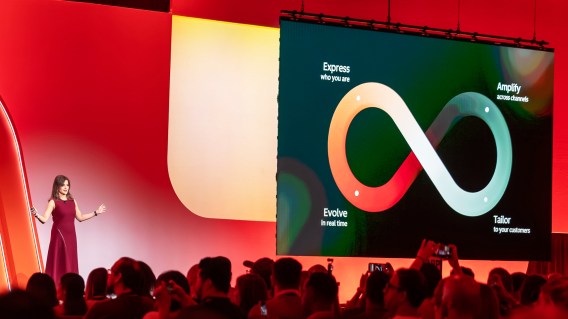‘60% of search traffic has gone away’: Hubspot’s marketing playbook for a complex world
CRM maker Hubspot has used its big annual conference in the US to launch what it is describing as a new marketing playbook – one adapted to a world of cratering search and fragmented content channels.

Hubspot CEO Yamini Rangan introduces the loop at Inbound 2025 (Hubspot)
The world was a different place when Mumbrella first caught up with Hubspot content boss Jonathan Hunt in June. Now, just three months later – with search referrals down 60% across the industry– it has developed what it is calling “loop marketing”, an adaptation to a new world in which the old channels coexist with the new, blogs are not dead but severely diminished, and content marketers are compelled to use AI to plan and personalise operations.
”It very much is the Wild West,” Hunt says. “In the old era of SEO, you would create content for people, right? You would create content based on keywords that had enough monthly search volume, but not enough competition where you felt like you couldn’t win for those keywords.
“You would create content, you would publish it, and then six months later you would start to rank in the SERPs and you would get traffic as a result.”
Hunt oversees Hubspot’s sizeable content operation, creating content on topics that engage potential buyers of Hubspot’s CRM (Customer Relationship Management software). The content grabs attention that is used to drive CRM sales – but it’s also an opportunity to understand the market forces affecting customers.

